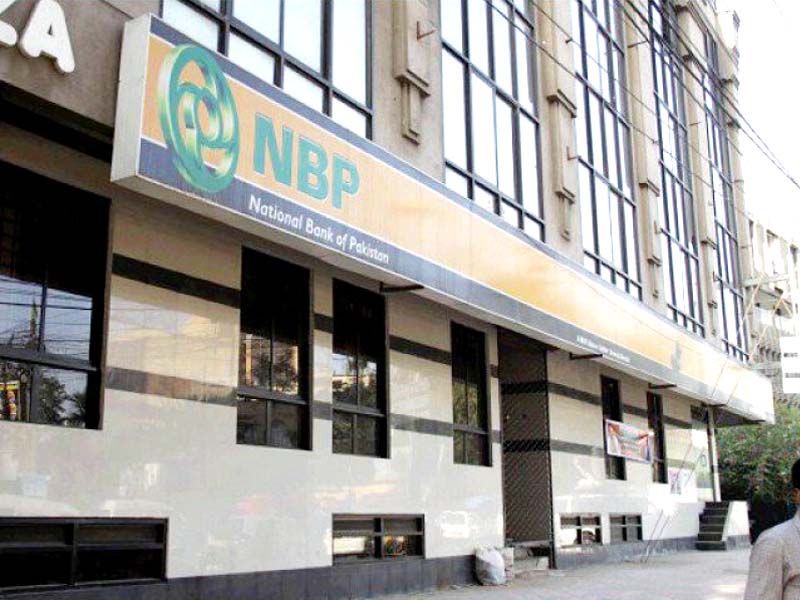
NBP’s share price has plummeted in the wake of the Supreme Court’s decision, with analysts and followers downgrading their investment call and target price on the state-owned bank. The share was last traded at Rs47.94 on Tuesday.
“The bank is required to recognise the financial impact of Rs47.7 billion upfront in its financials, causing the bank to incur a loss for the year 2017,” Ahmad informed the National Assembly Standing Committee on Finance. He said that the bank’s equity will erode by about Rs31 billion.
NBP could take Rs48b hit as top court rules in favour of pensioners
The parliamentary body had sought the briefing from the country’s largest government-owned bank on the SC’s decision to give relief to NBP’s pensioners. Last month, the apex court instructed the NBP to give pension benefits at the rate of 70% of the average basic pay. Currently, the employees are getting the pensions equal to only 33% of their average basic pay.
The NBP president said that the bank’s total equity is Rs130 billion, which will erode by about 24% in case it implements the decision.
Ahmed went on to say that the bank will also not be able to meet the requirements of Capital Adequacy Ratio (CAR), which will fall to 7.9% against the State Bank of Pakistan’s (SBP) requirement of 11.28%. He said that the bank’s current CAR was 14.85% - well above SBP’s minimum limit.
The high credit risks would limit the bank’s options to either reduce its credit exposure or ask other banks to buy its loans, Ahmed said, while highlighting the grave financial challenges his institution is now exposed to due to an inability to make provisioning in previous years.
Ahmed said that two other commercial banks also reviewing the implications of the SC’s decision, as it may also affect them.
He said that in order to fulfil the SBP’s and international regulators’ requirements, NBP will have to review its dividend policy and may have to go for a rights shares issue to raise capital from existing shareholders to compensate the damages.
“The national institution will be massively damaged and we will not be able to meet even the regulatory requirements of international regulators which will also affect our overseas operations,” the president said.
To a question, Ahmad said that as per the international accounting practices the losses have to be booked in this year’s balance sheet. He said that the other option was to enter into an arrangement with the SBP but that, he noted, cannot last for more than two to three years.
The NBP had changed the structure of the employees’ compensation structure in 1998, increasing salaries by up to 140% but reducing post-retirement benefits by over 47%. The employees challenged the decision in the courts and subsequently got the relief.
Ahmad said that the bank will file a review petition in the Supreme Court, hoping to get a relief.
s18b corruption case: NAB arrests ex-NBP chief, four co-accused
In case the NBP does not get relief, Acting Governor of the SBP Jameel Ahmad said the bank will have to look for other options to fulfil the regulatory requirements. He said that NBP had assured the central bank that it would comfortably win the case in the court; therefore, the SBP did not press the NBP to make provisioning in the balance sheet.
In case, NBP takes the Rs47.7 billion hit on its balance sheet, it will be the second major dent for the state-owned bank after a Rs18.5-billion loss due to fraud in its Bangladesh operations. The NBP president said that the bank’s leverage ratio - relationship between a bank’s core capital and other assets - will also slip below SBP’s requirements in case it takes the Rs47.7 billion hit. The president said that the bank’s current leverage ratio is 3.04% - slightly above SBP’s limit - but will then slip to 1.56%.
“In order to maintain a 3% leverage ratio, the bank will be required to lower its on and off balance sheet exposure to Rs1.4 trillion, which means that besides not being able to accept new deposits and make fresh lending and investments, the bank will also be forced to shed existing exposure”, he said.
Ahmad further said that the SC decision will also affect the bank’s operations in the United States, Bahrain, Saudi Arabia and Europe due to weak financial position of the bank. He said the plan to open a branch in China will also be affected due to the resulting low asset and capital base.
Published in The Express Tribune, October 11th, 2017.
Like Business on Facebook, follow @TribuneBiz on Twitter to stay informed and join in the conversation.

















COMMENTS
Comments are moderated and generally will be posted if they are on-topic and not abusive.
For more information, please see our Comments FAQ